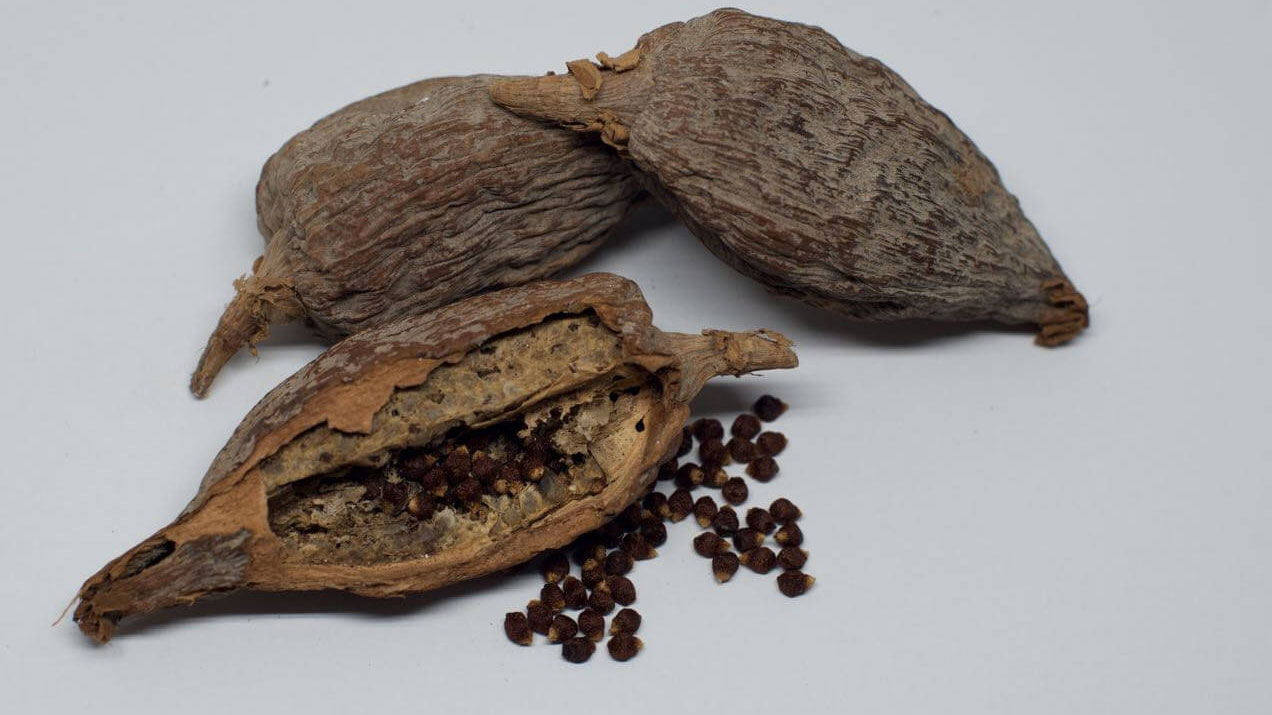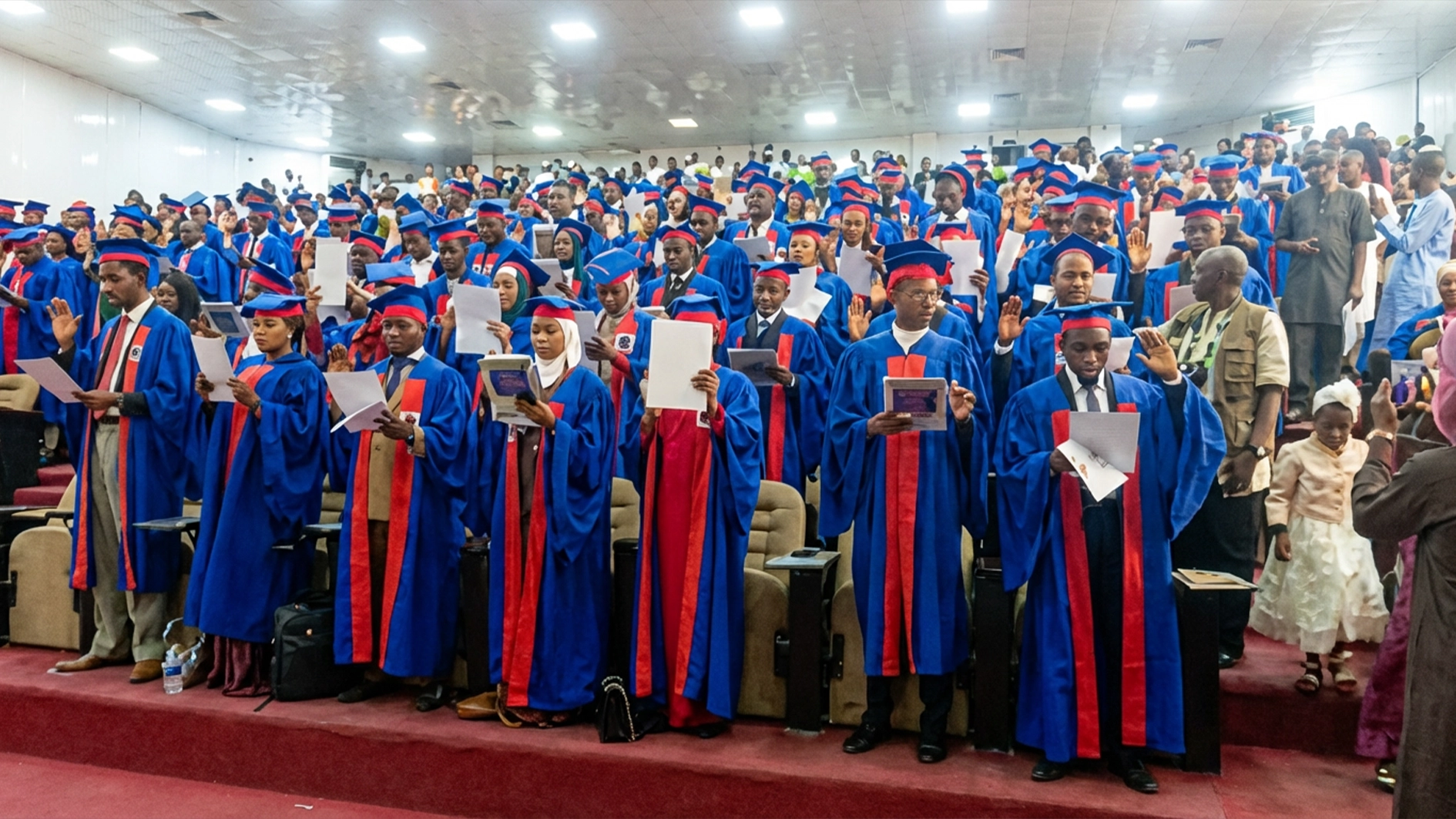
*As AAUA researchers partner with NABDA, ABUAD in development of novel product
A group of researchers from the Adekunle Ajasin University, Akungba-Akoko, Ondo State, in collaboration with partners from the National Biotechnology Development Agency (NABDA) Abuja and Afe Babalola University, Ado Ekiti (ABUAD) has come up with a herbal preparation, tea and soap that have shown immense capability to cure and prevent the Corona Virus Disease (COVID-19).
The herbal preparations were produced from a local plant Aframomum melegueta (alligator pepper also called grains of paradise) While the team from AAUA was at the forefront of research, design and subsequent pre-clinical studies were contributed by partners at ABUAD and the Centre for Genomics Research and Innovation of NABDA.
The team relied on the ABUAD Multi-System Hospital (AMSH) for clinical trials while patents and approval from the Federal Government via the National Agency for Food, Drug Administration and Control (NAFDAC) are being awaited.
Seed funding for the ground breaking research was through an initial Tertiary Education Trust Fund (TetFund) research grant awarded to the AAUA group for the development of bio-active compounds from local plants. The eventual success was made possible with additional sacrificial personal and institutional funding, multidisciplinary cooperation and world-class facilities brought on board by all the collaborators.
The team is made up of Dr. I. O. Omotuyi; Prof. N. Oyekanmi, Dr. B. O. Ajiboye, Prof. V. Olumekun; Dr. B. E. Oyinloye; Dr. O. T. Osuntokun; Prof. A. Olonisakin; Prof. A. O. Ajayi; Dr. O. Olusanya; Dr. F. S. Akomolafe; and Dr. N. Adelakun.
Speaking on the development, the corresponding leader of the team, Dr. Omotuyi, said that the team leveraged on the experiences gained from six years of research into anti- viral medicine for Ebola and Lassa Fever by the Centre for Bio-Computing and Drug Development of AAUA.
In his words, “the team was put together to look into finding a cure for the Corona Virus Disease using locally available materials and we were able to find a local plant from which we got three fractions that showed excellent promise of curative and preventive properties as far as COVID-19 is concerned.
“Our laboratory trials were able to prove that if the herbal drug we discovered is administered on a COVID-19 patient, the probability of being cured is very high. In addition, we produced soap and herbal tea from this same local plant, and the result we got was that the soap shows the ability to kill the Corona Virus that might be on the surface of the body. The tea, on the other hand, shows properties that literally render whoever regularly takes it protected.
“We have done our bit and we have our results. Our various laboratory tests show that the products are safe for human use and have no adverse effect whatsoever. We are in the process of patent registration; we now await funding for further development and distribution. Our capacity to produce these products is not in doubt. In fact, the ABUAD end has come up with its own drugs, but cannot distribute until the government grants the approval.”
Omotuyi further stated, “These ones we have come up with are well researched, documented, trialed and analysed by experts both from within and outside the country.”
According to the team, the high point of the research is that it proves that with the right environment and adequate funding, Nigerian scientists can compete effectively at the global level. It also goes to showcase the fact that our rich biodiversity grants us comparative and often competitive advantage on several fronts.
Some of the relevant results have already been published internationally in Phytotherapy Research, Journal of Applied Life Sciences International and Archives of Current Research International.
Nigerian researchers had identified ginger, garlic, onion, bitter kola, alligator pepper, black seed, turmeric, bitter leaf, zinc and vitamin C to have the capacity to prevent and treat COVID-19.
The study titled “Frugal Chemoprophylaxis against COVID-19: Possible preventive benefits for the populace” was published in the International Journal of Advanced Research in Biological Sciences.
The researchers from Departments of Biochemistry, Faculty of Basic Medical Sciences, College of Medicine, University of Ibadan, Ibadan, Oyo State; University of Lagos, Lagos State; and Federal University of Technology, Akure, Ondo State, led by Dr. Teibo John Oluwafemi, concluded: “…The pathophysiology of SARS-CoV-2 infection, is associated with aggressive inflammatory responses which uncontrolled inflammation inflicts multi-organ damage leading to organ failure, especially of the cardiac, hepatic and renal systems and most patients with this infection who progressed to renal failure eventually death.
“In this review, some medicinal foods were elucidated, which include ginger, garlic, onion, bitter kola, alligator pepper, black seed, turmeric, bitter leaf, zinc and vitamin C which possess potent pharmacological activities which include anti-inflammatory, anti-viral, anti-pyretic properties, inhibition of viral replication properties against the symptoms displayed by SARS-COV-2 infection. These frugal medicinal foods offer great chemoprophylaxis benefits and can play potent roles in the prevention and curtailing of the community spread of COVID-19 as it enhances boosted immunity and defense of the body system as a result of its cost effectiveness and availability.
“We hereby recommend that further research should be done to evaluate the protective roles of these medicinal foods on COVID-19 infection as well as promote the development of drugs and improved plant medicines as this outcome can prepare the global populace against subsequent global outbreak of viruses.”
Also, Nigerian researchers had identified and validated local plants for the treatment of viral infections. Until now, several local herbs have been shown to have antibacterial and antiviral properties. Although there are no cures for viral infections, researchers suggest many natural remedies have been shown to provide relief and prevent complications.
The plants include: Bambusa vulgaris (bamboo) and Aframomum melegueta (alligator pepper), Azadirachta indica (neem), Allium cepa (onion), Allium sativum (garlic), rhizomes of Curcuma longa (turmeric), and Aloe vera, Vernonia amygdalina (bitter leaf), Garcinia kola (bitter kola), Citrus medica (lemon), Cymbopogon citratus (lemon grass), Moringa, Phyllanthus amarus, avocado (Persea americana), and Gardonema mushroom.
Researchers had also identified asthma herb (Euphorbia hirta), pawpaw (Carica papaya), bitter melon (Momordica charantia) and guava (Psidium guajava) extracts as potential ‘cures’ for viral infections.
Researchers from Ekiti State University, Ado Ekiti, and Kings University, Osun State have validated antiviral properties of two Nigerian plants- alligator pepper (grains of paradise) and bamboo.
The study was published in African Journal of Plant Science. According to the researchers, ethanolic extracts were prepared from Bambusa vulgaris and Aframomum melegueta. They were analysed for antiviral activities against three human viruses namely: measles, yellow fever and polioviruses by standard laboratory tests.
The researchers wrote: “Both extracts showed antiviral activities against one or two viruses. B. vulgaris resulted in inhibition only on measles virus at Minimum Inhibition Concentration (MIC) of 62.5 µg/ml while A. melegueta inhibited measles and yellow fever viruses at MICs of 125 and 250 µg/ml respectively. Polio virus type 1 was not susceptible to any of these extracts.”
Until now, extracts from Bambusa vulgaris are traditionally very effective in the treatment of measles and helminthic infections while extracts from Aframomum melegueta are used in the treatment of infections such as cholera, smallpox and chicken pox.
The researchers added: “The outcome of the antiviral screenings of Aframomum melegueta and Bambusa vulgaris was impressive as the extracts possess activity against two of the viruses which were tested. Activity was found in extracts of the two plants. Out of the three viruses, only measles virus was susceptible to the extract of B. vulgaris. The other two viruses were resistant to the extract.
“Extract of A. melegueta was however inhibitory on both measles and yellow fever viruses. Measles virus was inhibited at a minimum concentration of 125 µg/ml and yellow fever virus was inhibited at a minimum concentration of 250 µg/ml. Polio virus was resistant to extracts of both plants. This is a characteristic of this virus. Poliovirus is a non-envelop virus infecting through the gastrointestinal tract and causes poliomyelitis due to its ability to evade the acidic nature of this tract. This is a kind of natural defense mechanism. It is therefore not surprising that extracts of the two plants had no effect on the poliovirus type 1. Although, extract of B. vulgaris was only potent on measles virus in-view of medicinal plant applications, extracts with broad-spectrum activities and minimal cytotoxic effects might be more important.
“It is interesting to attempt to correlate the traditional applications of the plant extracts with the microbial targets. In the case of B. vulgaris, this is feasible since the extract of this plant had activity only on measles virus.
“Antiviral activities observed with extract from A. melegueta had a broader activity since it inhibited the growth of both measles and yellow fever viruses. The antiviral activities observed with these plants are most probably due to the phytochemicals in the plants. Such phytochemicals, according to Ekwete (1992) include tannin, phenolic compounds, saponins, flavonoids and protocatectic acid among others. These phytochemicals are known to activate the lymphocytes of infected individual and prevent forming of resistance in viruses and also virus replication.
“It should therefore be recommended that application of extracts from these plants could help in the treatment of measles and yellow fever infections.”






